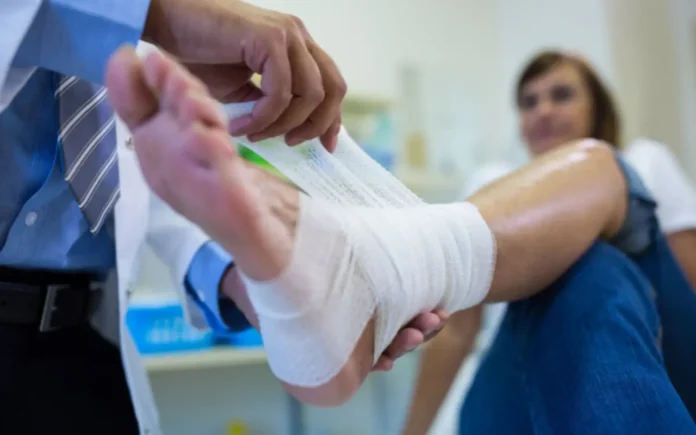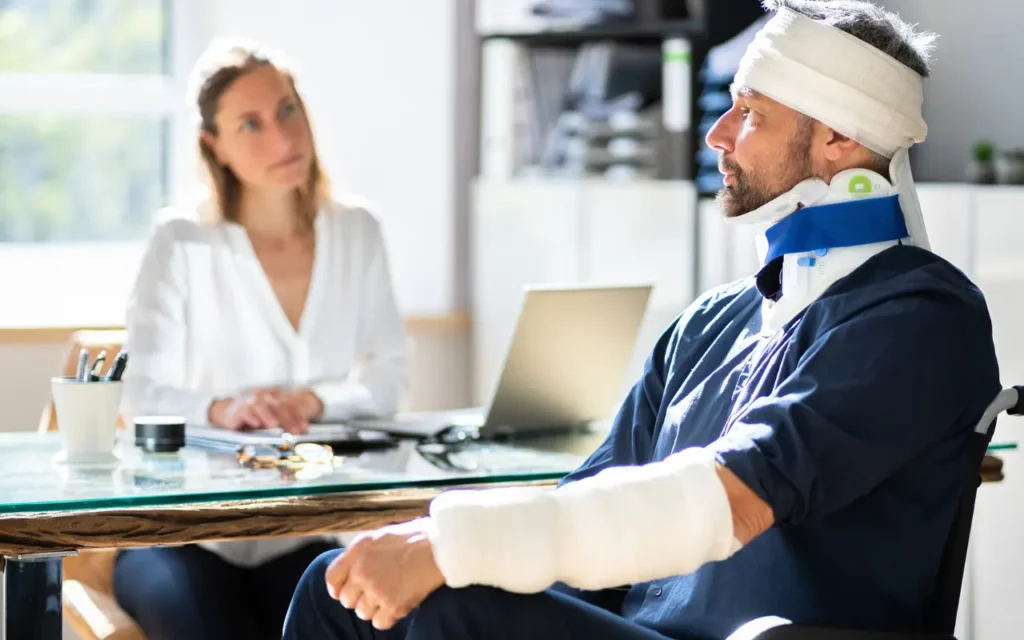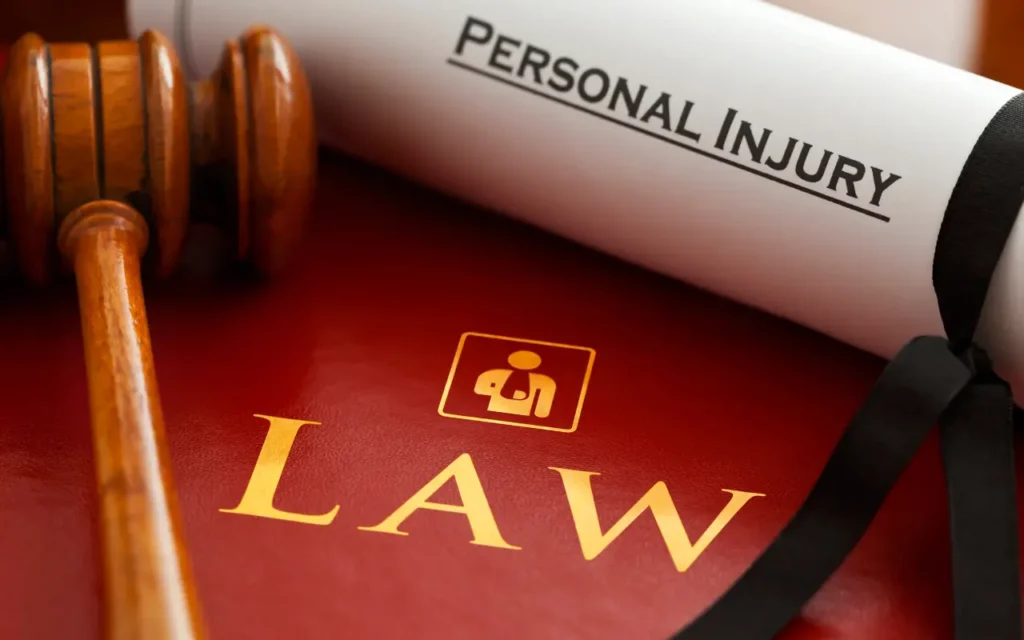
Imagine you’re out shopping for groceries when you suddenly trip over something that shouldn’t have been there. One minute you’re fine, and the next you’re hurt, embarrassed, and unsure of what to do next. Unfortunately, injuries in grocery stores and shopping areas are more common than you’d think, and they are not always “accidents.”
Most people don’t realize that businesses and store owners are legally responsible for keeping their premises safe for visitors and customers. If they fail to fulfill their responsibility, you can seek compensation for monetary and non-monetary damages.
Let’s break down the common causes of injuries in stores, how liability works, and what your legal rights are.
Common Causes of Injuries in Stores
A routine visit to your local store can quickly turn into a painful experience if the store isn’t properly maintained. Here are some causes of injuries:
Slip and Fall Accidents
Slip and fall accidents can be caused by wet floors and freshly mopped surfaces without warning signs. For example, in a grocery store, there could be leaking freezing units, spilled liquids, or produce dropped in the aisles.
Trips
Some stores don’t take the necessary measures to keep the floors and other surfaces clutter-free. Employees might leave ladders or boxes in high-traffic areas, causing a customer to trip and suffer an injury.
Falling Objects
Grocery stores that stack products high on shelves need to take extra measures to prevent them from falling. Unfortunately, that is not always the case. Due to overloaded shelves and improper stacking, objects can fall and injure someone below.
Uneven Flooring
Cracked tiles and uneven flooring can make customers lose their footing. Retailers have a duty to fix such issues promptly, protecting themselves from a lawsuit.
Poor Security
Poor security measures can lead to assaults and robberies, leading to serious injuries.
Faulty Handrails
In some jurisdictions, business owners are required by law to install handrails on stairs or ramps. If you get injured due to a broken or worn-out handrail, you have the right to seek compensation.
Remember that every case is unique, and other forms of negligence may also apply. If you’ve been injured at a store, it is best to reach out to a competent personal injury law firm, such as Edwards Injury Law. Experienced attorneys can better assess your situation, explain your rights, and suggest the best course of action.
Types of Injuries That Can Happen at a Store
Injuries that occur in stores can range from minor bruises to life-altering conditions. Moreover, what might seem like a minor laceration can lead to serious consequences. Here are some injuries that can happen:
- Cuts and bruises
- Sprains and fractures
- Head injuries
- Spine injuries
- Neck injuries
- Shoulder dislocations
- Internal bleeding

Exploring Premises Liability Injury Claim
As mentioned earlier, store owners and managers have a legal obligation of duty of care. This comes under premises liability, which holds store owners responsible for maintaining a safe environment for those who enter their premises. In the context of a store injury, this legal concept is critical for determining whether the store owner or manager was at fault and to what extent.
Remember that a retail store’s premises are not restricted to display aisles. Other areas include:
- Parking lots
- Restrooms
- Fitting rooms
- Outdoor walkways
To establish a premises liability claim, the defendant must prove the following:
The Store Owed a Duty of Care
Customers are considered invitees under the law and are owed the highest level of protection. In this context, the store owner or manager must regularly inspect the premises for hazards, clearly mark dangerous areas, and maintain proper lighting. All of these measures come under a duty to care for the customers.
The Store Owner was Negligent
The next step is demonstrating that the store owner failed to take reasonable steps to keep the premises safe. This could be a spilled beverage, a loose rug, poor lighting, or overstocked shelves.
The Plaintiff was Injured
While a dangerous condition can be present at the store, without an injury, there is no liability claim. The plaintiff must show medical reports and other evidence to prove they suffered an injury.
The Store Owner’s Negligence Led to Damages
The last step is demonstrating that the store owner’s negligence was a significant factor in causing harm. The plaintiff must also show that the damage was foreseeable and avoidable if the store owner had taken the necessary safety measures.
Premises liability laws are designed to protect the public from preventable harm. If a store neglects its responsibility, the injured party has the right to demand answers and justice.
What To Do After an Injury
If you’ve been injured at a store, here are some steps you should follow to ensure fair compensation:
- Seek medical attention immediately, even if the injury seems minor.
- Report the incident to a manager or supervisor and ask them to write an incident report.
- Take pictures and videos of the scene, your injury, and any hazards. A store owner might try to hide evidence, such as cleaning a spill. Therefore, stay proactive and gather as much evidence as possible.
- Gather witness information to get statements later on.
- Keep all your medical records, including tests, prescriptions, and doctor’s notes, safe.
- Get in touch with a personal injury lawyer. Choose a lawyer who has ample experience in store injury cases and assess their reputation before hiring.

What Damages Can You Recover
A personal injury lawyer can help you get compensated for several types of damages, such as:
- Medical bills, past and future
- Loss wages
- Pain and suffering
- Emotional distress
- Loss of enjoyment of life
- Punitive damages in case of gross negligence and irresponsible behavior
Remember that the final compensation amount varies depending on the severity of your injury as well as other factors, such as age, familial responsibilities, and earning potential.
How a Personal Injury Lawyer Can Help
When you’re dealing with pain, medical bills, and the uncertainty about what to do next, it is easy to feel overwhelmed. This is where a personal injury lawyer can make a world of difference. They know the ins and outs of personal injury cases, including premises liability claims.
A lawyer will evaluate your case and determine its strengths and weaknesses. They will gather evidence, focusing on the factors that will strengthen your case. A personal injury lawyer will also handle all communication with insurance companies, making sure you don’t have to settle for a low offer.
Lastly, if a fair settlement isn’t reached, your lawyer can file a lawsuit and represent you in court. Having someone experienced by your side can only increase your chances of getting fair compensation, but also provide peace of mind and the space to heal and get back to life.








